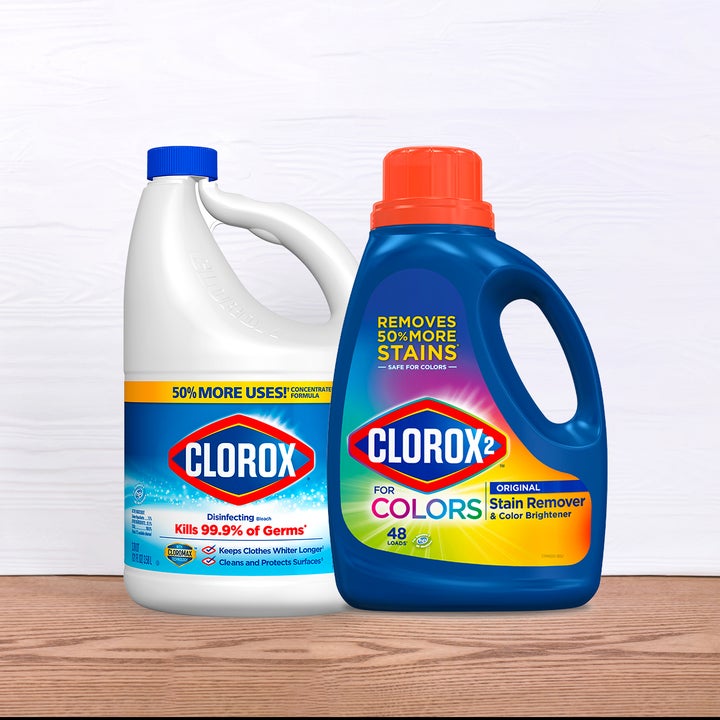This is Anthony Thompson, chief editor and the founder of this site, Tinyhousegarage. I'm a home architect. Basically, I've created this site to help people...Read more
When it comes to disinfecting and sanitizing surfaces and materials, there are a variety of options available. Two of the most popular and widespread substances used for this purpose are bleach and chlorine. While both of these products are effective at killing germs and bacteria, it is important to understand the differences between them and how they should be used. This article will compare bleach and chlorine for disinfection and explain the advantages and disadvantages of each.
Bleach and chlorine are both strong oxidizers that are used to kill bacteria and other microorganisms. Bleach is a combination of sodium hypochlorite and other compounds, while chlorine is a gas or liquid that is made from chlorine gas and other chemicals. While both are effective at killing germs, they have varying levels of effectiveness and may pose different risks when used improperly. Additionally, each has advantages and disadvantages that should be taken into consideration when deciding which product to use for disinfection.
Bleach and chlorine are both effective at disinfecting surfaces and killing bacteria and viruses. However, they are two different substances and have different advantages and disadvantages. Bleach is a chemical compound made up of sodium hypochlorite, while chlorine is a gas or liquid chemical element. Bleach is a stronger disinfectant than chlorine, however, it can be dangerous if not used correctly and can cause skin and eye irritation.
Bleach is easy to use, but it is corrosive and can cause damage to surfaces. Chlorine is not as harsh as bleach and is less likely to cause damage. It is also more economical and has a longer shelf life. Both are effective at killing bacteria and viruses, however chlorine is better for killing algae and other microorganisms.
The table below compares bleach and chlorine for disinfecting surfaces.
| Bleach | Chlorine |
|---|---|
| Stronger disinfectant | Less corrosive |
| Can cause damage to surfaces | More economical |
| Irritates skin and eyes | Longer shelf life |
| Kills bacteria and viruses | Kills algae and other microorganisms |

Bleach Vs Chlorine for Disinfection
Bleach and chlorine are both popular and effective disinfectants, but there are key differences between them. In this article, we will discuss the differences between bleach and chlorine and which one is more effective for disinfection purposes.
What is Bleach?
Bleach is a chemical compound made from chlorine and sodium hydroxide. It has been used for centuries to disinfect, whiten, and remove stains from clothing and other surfaces. Bleach is a strong oxidizing agent, meaning it can break down organic matter and other contaminants. It is commonly used in household cleaning products, but can also be used in industrial applications as well.
Bleach is best used for disinfecting hard surfaces, such as countertops and floors. It is not recommended for use on fabrics, as it can cause discoloration and fading. Bleach is also not recommended for use on porous materials, such as wood and plastics, as it can cause them to become brittle over time.
What is Chlorine?
Chlorine is a naturally occurring chemical element and a common ingredient in many cleaning products. It is a powerful disinfectant and can be used to kill bacteria, viruses, and fungi. It is most commonly used in swimming pools, water systems, and industrial applications.
Chlorine is most effective when used in liquid form, as it can be quickly and easily distributed. Chlorine does not leave behind any residue and can be used on a wide range of surfaces, including fabrics and porous materials.
Which is More Effective for Disinfection?
When it comes to disinfection, both bleach and chlorine are effective at killing bacteria, viruses, and fungi. However, bleach is more effective on hard surfaces, as it is a stronger oxidizing agent. Chlorine is more effective on fabrics and other porous materials, as it does not leave behind any residue.
In terms of cost-effectiveness, chlorine is usually cheaper than bleach. However, it is important to note that chlorine can be hazardous if not handled properly, while bleach is relatively safe to use.
Safety Considerations
When using either bleach or chlorine for disinfection purposes, it is important to follow the instructions on the product label. Bleach is a powerful oxidizer and can be corrosive if not handled properly. Chlorine, on the other hand, is a hazardous chemical and should be handled with caution.
It is also important to remember that both bleach and chlorine can be dangerous if ingested, so they should be stored out of reach of children and pets. Additionally, both products should be used in a well-ventilated area and protective equipment, such as gloves and face masks, should be worn when using them.
Frequently Asked Questions: Bleach Vs Chlorine for Disinfection
Chlorine and bleach are two of the most common disinfectants used to prevent the spread of pathogens. Both are effective at killing germs and bacteria, but there are some differences between the two that should be considered when choosing the right disinfectant.
1. What is the difference between chlorine and bleach?
The primary difference between chlorine and bleach is their chemical composition. Chlorine is a chemical element, while bleach is a chemical compound made up of chlorine and other compounds. Chlorine is used in a variety of industrial applications, including water treatment and sanitation, while bleach is used primarily for cleaning and disinfecting.
2.What are the pros and cons of using chlorine and bleach for disinfection?
Chlorine has several advantages when it comes to disinfection. It is widely available, relatively inexpensive, and effective at killing germs and bacteria. It is also effective at killing a wide variety of organisms, including spores, fungi, and viruses. The main disadvantage of chlorine is that it can be corrosive and can irritate the eyes, nose, and throat.
Bleach also has several advantages over chlorine. It is highly effective at killing bacteria, fungi, and viruses. It is also easy to use and is widely available. The main disadvantage of bleach is that it is more expensive than chlorine and is not as effective at killing spores. It can also be corrosive and can irritate the eyes, nose, and throat.
3. How do I properly use chlorine and bleach for disinfection?
When using chlorine for disinfection, it is important to follow the manufacturer’s instructions carefully. The concentration of chlorine should be carefully adjusted based on the type of surface being disinfected and the amount of time needed for disinfection. It is important to wear protective clothing and eyewear when working with chlorine, as it can be corrosive and can irritate the skin and eyes.
When using bleach for disinfection, it is important to dilute it with water according to the manufacturer’s instructions. It is also important to wear protective clothing and eyewear when working with bleach, as it can be corrosive and can irritate the skin and eyes.
4. What surfaces can chlorine and bleach be used on?
Chlorine can be used on a variety of surfaces, including hard surfaces such as countertops, floors, and walls. It can also be used on soft surfaces such as fabric and carpets.
Bleach can be used on hard surfaces such as countertops, floors, and walls. It is not recommended for use on fabric or carpets, as it can cause discoloration and fading.
5. How long does chlorine and bleach last on surfaces?
Chlorine can remain active on surfaces for up to 24 hours. After this time, it should be reapplied to ensure that the surface remains disinfected.
Bleach can remain active on surfaces for up to 10 days. After this time, it should be reapplied to ensure that the surface remains disinfected.

In conclusion, bleach and chlorine are both effective disinfectants when used correctly. Bleach is more effective at killing germs, while chlorine is better for persistent odors. Both products have their advantages and disadvantages, and which one you choose depends on your individual needs.
When it comes to disinfecting, it is important to remember to read the labels and follow the instructions. Both bleach and chlorine can be dangerous if used incorrectly, so it is best to take the time to educate yourself to ensure that you are using the right product for the job. With the right knowledge and application, both bleach and chlorine can keep your home safe from bacteria, viruses, and other contaminants.

This is Anthony Thompson, chief editor and the founder of this site, Tinyhousegarage. I'm a home architect. Basically, I've created this site to help people build tiny houses with a limited budget and land space or people who are homeless. As a home architect, I became very disheartened when I saw homeless people around me, which influenced me to create this site to help people build beautiful tiny houses.
More Posts
